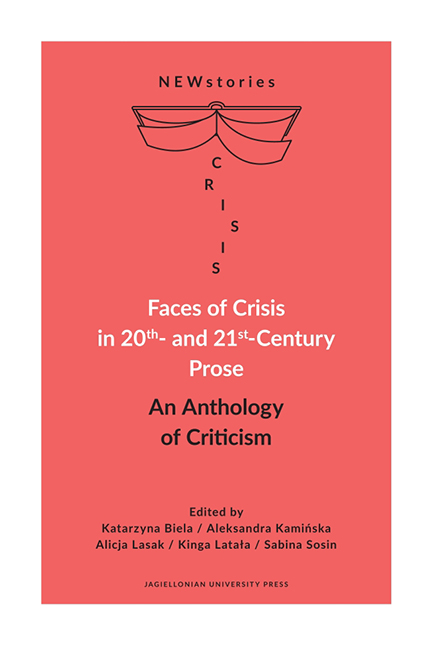Foreword
Published online by Cambridge University Press: 16 July 2022
Summary
As the eponymous Doomsday Clock has now been reset to 100 seconds to midnight, which is closer than it has ever been, there can be no doubt that humanity is facing some of the direst crises in its entire history (Bulletin of the Atomic Scientists 2020: n.pag.). Nuclear war, climate change, and cyber-information warfare—these are but a few challenges that dominate current Zeitgeist, following the turbulent 20th century marked by the two world wars, the Cold War, financial crises, and AIDS epidemics. People, arguably, are immersed in near perpetual crisis.
It seems, indeed, that crisis is as necessary to us humans as it is traumatic. As Frank Kermode argues in his seminal book The Sense of an Ending. Studies in the Theory of Fiction, “the paradigms of apocalypse continue to lie under our ways of making sense of the world” (2000: 28). Following Erich Auerbach's diagnosis that “we are constantly endeavouring to give meaning and order to our lives in the past, the present, and the future, to our surroundings, the world in which we live” (2013: 549), Kermode insists that permanent crisis becomes one of such ways (2000: 93), offering us a frame of reference in which human life can be understood and seen as meaningful.
As Richard Brown (p. 16) points out, the Greek word krisi (“crisis”) shares its etymological roots with krisimos (“crucial”, “critical”) and kritikos (“critic”),which suggests that, indeed, investigating our chief crises may provide an opportunity to critically examine ourselves and the world in which we live. After all, every crisis must eventually be surmounted—as D. H. Lawrence reminds us in Lady Chatterley's Lover, discussed at length in one of the essays included in this volume, “there is no smooth road into the future, but we go round, or scramble over the obstacles” (1993: 5).
Taking the above into consideration, one cannot but acknowledge that literature and crisis cultivate and reflect each other. As Richard Brown argues in the opening essay in this volume, tellingly titled “Literature as Crisis”, past crises shape and inform the current ones, feeding ideas and tensions into our political realities as well as literary works.
- Type
- Chapter
- Information
- Faces of Crisis in 20th- and 21st-Century ProseAn Anthology of Criticism, pp. 9 - 12Publisher: Jagiellonian University PressPrint publication year: 2020



